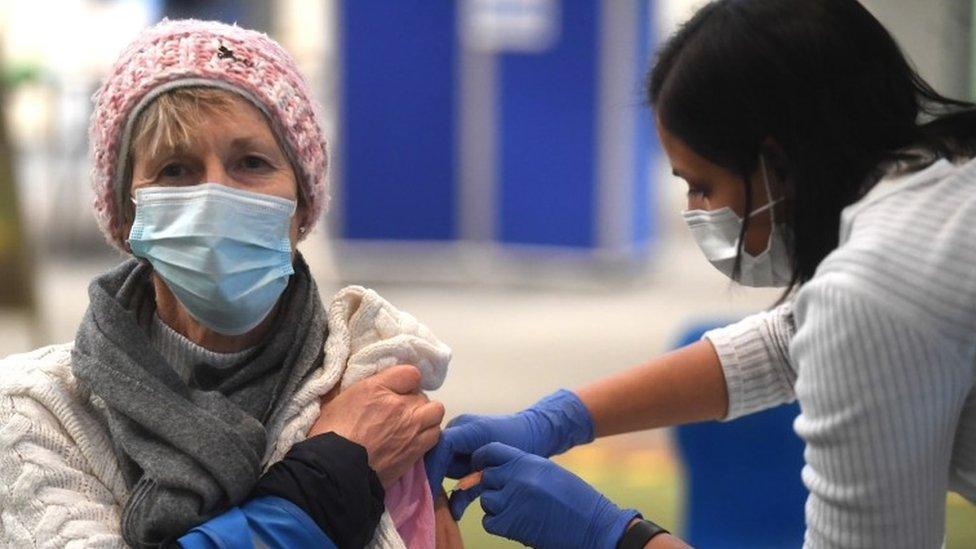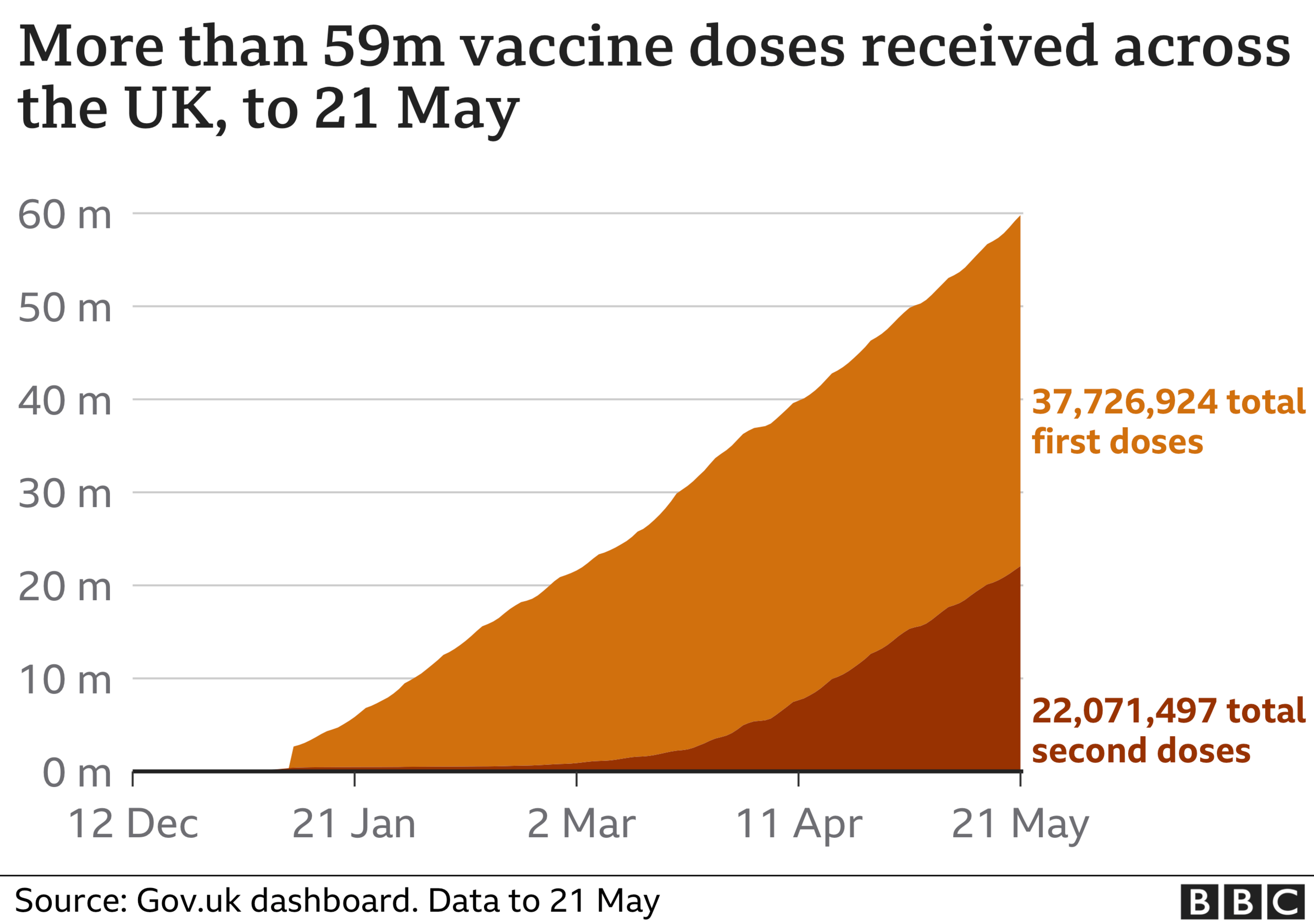Covid-19: More than 50m vaccine doses given in England
- Published

More than 50 million coronavirus vaccine doses have now been given in England.
Figures released by NHS England show 31,546,846 adults have had their first jab, of which 18,699,556 have had both.
Health Secretary Matt Hancock said the milestone came after "one of the biggest and most important national efforts in our history".
People aged 32 and 33 in England are being invited to book their first vaccination from this weekend.
NHS England's lead for the Covid vaccination programme, Dr Emily Lawson, said the rollout was "continuing at pace".
"This success is the result of the tireless efforts of NHS teams, alongside local partners and volunteers, who are determined to protect their patients, families and communities," she said.
"Despite this we must take nothing for granted so when you are invited please book your appointment - and, along with millions of others, get vital protection against coronavirus."
A total of 50,246,402 Covid-19 first or second doses of vaccinations took place in England between December 8 and May 21, the data shows.
Across the UK more than 620,000 people had a vaccine dose on Friday, the latest government data shows.
It means 37,726,924 people, or 71.6% of all UK adults, have now had a first dose, and 22,071,497 (41.9% of all adults) their second.
A further 2,694 new cases and six deaths, within 28 days of a positive test, were also announced on Saturday.

Mr Hancock has said the government is on track to offer a first vaccine dose to all adults in the UK by the end of July.
The NHS opened bookings to about one million more people in England on Saturday morning.
Text message invitations are being sent out to 33-year-olds on Saturday and to 32-year-olds on Monday.
They will appear as a message from "NHSvaccine", and people who cannot go online can call 119 to book a jab.
The other UK nations are already offering jabs to younger age groups - people aged 30 and over are eligible in Scotland, as are over-18s in Wales and over-25s in Northern Ireland.
Why it is normal for some people to experience short-term side effects from Covid-19 vaccines
People in their 30s and pregnant women are being offered either the Pfizer-BioNTech or the Moderna vaccines if they are available, rather than the Oxford-AstraZeneca jab, because of concerns about a possible link between the Oxford jab and rare blood clots.
Over-50s, and those considered clinically vulnerable, will have their second doses brought forward to eight weeks after their first, rather than 12, following concerns about the spread of the variant first discovered in India.

LOOK-UP TOOL: How many cases in your area?
YOUR QUESTIONS: We answer your queries
VACCINE: When will I get the jab?
NEW VARIANTS: How worried should we be?

The variant - also known as B.1.617.2 - is responsible for the majority of new cases in pockets of England.
Bolton continues to be the worst affected area with 385 cases per 100,000 people.
But North Tyneside and parts of west London are among the latest areas to start surge testing of residents amid concerns at its spread.
Meanwhile, Rochdale has joined other parts of the North West in also offering jabs to anyone over the age of 18 in some parts of the town in an attempt to prevent cases spiralling further.
The guidelines from the Joint Committee on Vaccination and Immunisation (JCVI), external say there is some flexibility on the way the rollout is conducted at a local level.
Andrea Fallon, Rochdale's director of public health, told BBC Radio 4's Today programme the council was still focusing on priority groups as well as opening five drop-in centres as part of a "new programme".
She said: "Once the virus gets into our communities it will take hold very quickly.... myself and our senior team have been working really closely with regional colleagues to put in place this surge vaccination programme this weekend."
It comes as Germany announced that anyone arriving from the UK will have to quarantine for two weeks. German officials said the decision was related to the spread of the Indian Covid variant.

"I'M NOT ALONE": Hayley Pearce talks about her own experiences living with ADHD
LIFE AFTER GRIEF: Stacey Dooley talks to parents about navigating pregnancy after losing a child

- Published18 June 2021
- Published7 June 2021

- Published2 April
